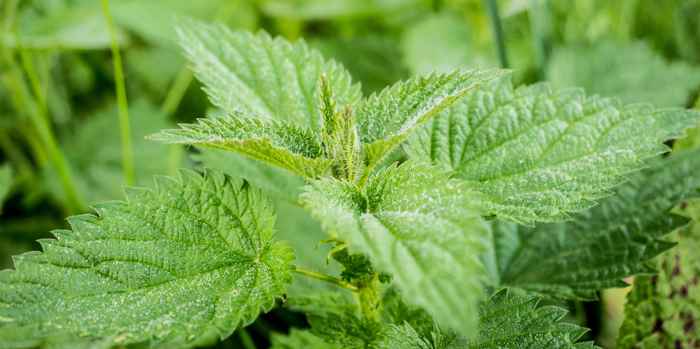SusCrop research
Developing crops that thrive on organic nitrogen
Agriculture and horticulture would become much more circular if
- The effective use of manure is expanded and the use of synthetic fertilizers reduced, and
- Protein crops are developed that are suitable for growing on organic N, and in northern Eurasia, to become less dependent of massive import of animal feed.
Wild plant species can use both inorganic (Ni) and organic (No) N sources, but for decades in agri- and horticulture the use of synthetic fertilizer, which only contains Ni, i.e. ammonium (NH4+) and nitrate (NO3-), has been common practice. In the same way, plant breeders have been breeding their elite food and feed crops. As an indirect consequence, most - if not all – commercial crops have lost genetic properties that were crucial for proper growth on No sources (i.e. manure), including uptake, metabolism and/or storage of No, but also genes for the plant's interaction with the microbiome.

Ecologically, nettles (Urtica dioica) are notorious biomarkers for nitrogen-rich soils, and are among the few plant species that can grow directly on a manure heap. Their leaves have an exceptionally high protein content, three times as much as barley or wheat flour. The young leaves are delicious and taste like spinach. In Italy, they are commonly used in cooking (pasta, risotto,) but they are also popular in other countries (e.g. Finland). Next to a high protein content, nettles also contain high-quality fibers and various other healthy nutrients. Nettle is also favored by livestock, in particular cows. Like grass, they can be mowed all season and will grow back quickly. Comparable to nettles, quinoa and various leafy vegetables from the brassica (cabbage) family are also recognized for their high protein content and significant health benefits, hence called superfoods.
Work packages
SusCrop research is organized into eight work packages (WPs):
WP1 focuses on identifying the molecular properties, such as genes, proteins, metabolites that enable plants to grow on different nitrogen sources. Obtained data will be used to develop an AI-N tool that identifies key nodes involved in uptake, metabolism and storage of No, and predicts bottlenecks of any elite crop that prevents them from using No and increasing their protein content. WP1 is led by Prof. Aalt-Jan van Dijk (University of Amsterdam) and Dr. Salma Balazadeh (Leiden University).
In WP2, a start with our new protein crops will be made, including nettle, quinoa, and various brassica's. WP2 is led by Prof. Wim Vriezen (Maastricht University) and Prof. Luisa Trindade (Wageningen University & Research).
Lentils will be included to monitor differences between N from air (N2) vs No and Ni, for protein yield, stress tolerance, and biodiversity above- and below ground (WP3, led by Prof. Peter van Bodegom of Leiden University and Prof. Astrid Groot of the University of Amsterdam).
Additionally, mass flows of food products, proteins, and N will be evaluated throughout the supply chain, assessing costs (economic and ecological) between fertilizers (WP4, led by Dr. José Mogollón of Leiden University and Dr. Emiel van Loon of the University of Amsterdam).
Food quality and safety of our new crops will be assed in WP5, as well as their potential as protein source for meat replacement and animal feed. WP5 is led by Dr. Lizette Oudhuis of Hanze University of Applied Sciences
and Van Hall Larenstein University of Applied Sciences.
In WP6, the governance strategies will be explored to align interests of consumers, producers (farmers), and market, in line with the Dutch government's aim for a dietary transition from 60% of animal protein to 70% vegetable protein by 2050. WP6 is led by Prof. Hens Runhaar (Utrecht University) and Prof. Frenk van Harreveld (University of Amsterdam).
Finally, WP7 and WP8 will assess impact on our society and the operation of the consortium, respectively. WP7 on focuses on knowledge transfer and impact, led by Dr. Roos van Maanen and Dr. Teun Munnik (University of Amsterdam). WP8 concerns project management under the responsibility of Dr. Teun Munnik (University of Amsterdam).